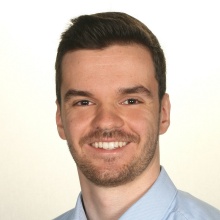Contact
+49 711 685 67929
Email
Business card (VCF)
Pfaffenwaldring 47
70569 Stuttgart
Deutschland
Room: 2.336
Subject
Machine Learning for Wireless Communications
My current research interests are:
- Signal processing for wireless communication systems (especially channel estimation)
- Application of machine learning techniques in digital communication systems
- End-to-end learning of digital communication systems (Autoencoder-based systems)
2024
- M. Beckworth, E. Fuchs, M. B. Fischer, and S. ten Brink, “Neural Network-Based Self-Interference Cancellation for Frequency Division Duplex,” in European Wireless 2024; 29th European Wireless Conference, 2024, pp. 47–52.
- M. B. Fischer, S. Dörner, T. Shimizu, C. Mahabal, H. Lu, and S. t. Brink, “On the Implementation of Neural Network-based OFDM Receivers,” in 2024 IEEE 99th Vehicular Technology Conference (VTC2024-Spring), 2024, pp. 1–6.
2022
- M. B. Fischer, S. Dörner, S. Cammerer, T. Shimizu, H. Lu, and S. t. Brink, “Adaptive Neural Network-based OFDM Receivers,” in 2022 IEEE 23rd International Workshop on Signal Processing Advances in Wireless Communication (SPAWC), Oulu, Finland, 2022 [Online]. Available: https://ieeexplore.ieee.org/document/9833970
- M. B. Fischer, S. Dörner, F. Krieg, S. Cammerer, and S. t. Brink, “Adaptive NN-based OFDM Receivers : Computational Complexity vs. Achievable Performance,” in Conference record of the Fifty-Sixth Asilomar Conference on Signals, Systems & Computers, Online, 2022, pp. 194–199 [Online]. Available: https://ieeexplore.ieee.org/document/10051898
2021
- M. B. Fischer et al., “Wiener Filter versus Recurrent Neural Network-based 2D-Channel Estimation for V2X Communications,” in 2021 IEEE Intelligent Vehicles Symposium (IV), 2021, pp. 458–465 [Online]. Available: https://ieeexplore.ieee.org/document/9575620
Winter Term 2024/2025:
Digitale Nachrichtenübertragung
Winter Term 2023/2024:
Digitale Nachrichtenübertragung
Winter
Term 2022/2023:
Übertragungstechnik 1
Summer Term 2022:
Nachrichtentechnik 2
Moritz Fischer is a member of the research staff at the Institute of Telecommunications (INUE)
since 2021. He received the B.Sc. degree in 2019 and the M.Sc. degree in 2021 in electrical
engineering and information technology from the University of Stuttgart. His research activities
center around the intersection of machine learning and wireless communications. He is recipient of
the
Dr. Gunter Woysch Award 2020 for his research thesis.


